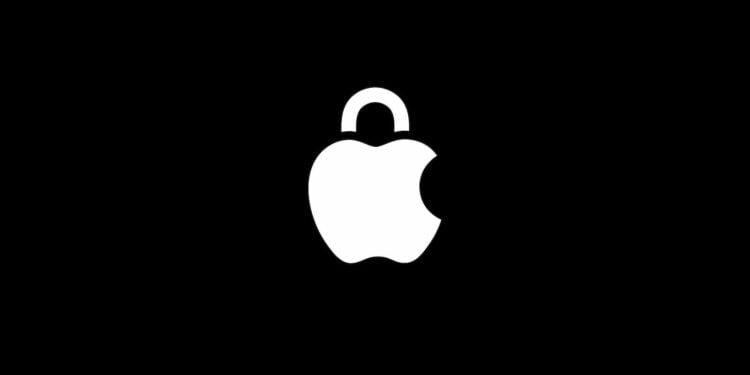Apple has been considered one of the companies that particularly emphasizes data protection for years. With the "App Tracking Transparency" (ATT) system, introduced in iOS 14.5, the company wanted to demonstrate that it was giving users more control over their data. Since then, apps have been required to ask for permission if they want to track activity for advertising purposes. This principle was seen by many as an important step against excessive data collection. Now, however, the measure is in jeopardy – especially in Europe, where several antitrust authorities have expressed doubts about Apple's handling of its own data protection standards.
Data is a currency in the digital economy. It determines how precisely targeted advertising is delivered and how successful business models are. Apple has changed the rules of the game with the introduction of ATT. The company presents itself as an advocate of privacy, while competitors like Meta and Google continue to rely on personalized advertising. But the measure that Apple once presented as a protective shield is increasingly coming under pressure itself. Authorities and competitors are questioning whether Apple is adhering to its own rules.
App Tracking Transparency – what’s behind it
With ATT, Apple has created a feature that determines whether apps can track user behavior across different apps and websites. After updating to iOS 14.5, a notification appears when launching an app, requesting permission. This decision can be made for each app individually or globally in the settings. If tracking is rejected, app providers can no longer collect data about interests, usage habits, or locations.
For many advertisers, this was a setback, as they lost important information for personalized ads. Apple, on the other hand, portrayed the feature as a step toward greater privacy—a clear contrast to the business models of many competitors that rely on extensive data analysis.
Criticism from competition authorities
While the system appears consistent at first glance, its implementation is controversial. Several antitrust authorities accuse Apple of applying double standards to its own services. While third-party apps are severely restricted, in-house applications like the App Store are to be allowed to continue collecting data. It is known that the App Store logs user behavior—for example, which apps are viewed or downloaded.
These exceptions are already having consequences: In France, Apple was fined €150 million. The company appealed, but similar proceedings are underway in other European countries, such as Germany and Italy. Critics argue that Apple is using ATT not only as a data protection measure, but also to strengthen its own market position in digital advertising. Advertisers are now increasingly forced to use Apple's own advertising platform for iOS campaigns, while third-party providers are disadvantaged by the tracking restrictions.
Withdrawal of ATT in Europe?
According to Handelsblatt, Apple could partially or completely withdraw ATT in Europe. The company states that this is "to the detriment of European consumers," but is a response to ongoing competition investigations. Apple emphasizes that it has submitted various proposals to the authorities to find a legally sound solution that would allow the tool to be retained.
The company is receiving support from the US data protection organization Electronic Privacy Information Center (EPIC). The organization considers the allegations against Apple unfounded and argues that ATT does not allow for preferential treatment of its own services. The system only prevents tracking across third-party providers, but not the internal analysis of anonymized usage data.
If Apple were to actually withdraw ATT, it would have a significant impact on data protection in Europe. Without the feature, advertising networks would be able to collect significantly more data about users and create detailed profiles. This would be a step backward at a time when digital privacy is becoming increasingly important to many.
Apple faces a test: Will its data protection policy hold up?
Apple faces a difficult balancing act between data protection and competition in Europe. The company has set standards with ATT, but its implementation is generating legal disputes and criticism. If the feature were to disappear, it would not only be a setback for Apple's privacy strategy, but also for many users who have previously had greater control over their data. The decision on the future of ATT will show whether Apple can maintain its privacy policy – or whether economic pressure and regulatory requirements will undermine the concept. (Image: Apple)
- Future iPhone could have greater NFC range
- iPhone Air: Production drops drastically after sales slump
- Apple stock in focus: Wells Fargo raises target to $290
- Apple Vision Pro not eligible for trade-in, according to Apple
- Apple is working on a tool for app data migration to Android
- iPhone Air weakens – Apple relies on other models
- Apple Vision Pro – Apple relies on Vietnam for manufacturing
- Samsung Galaxy XR – The new mixed reality experience
- iPhone 17 Pro turning pink? What's really behind it?
- iPhone 17 booming – Wedbush raises price target for Apple
- M5 MacBook Pro Reviews: Apple's professional laptop in a detailed test
- Apple Vision Pro 2025 reviews: More stable, sharper, better
- New AI browser ChatGPT Atlas: More than just a search
- Shrinking Season 3 starts in January 2026 on Apple TV
- WhatsApp warns of fraud: New protection feature active
- M5 iPad Pro reviews: More power, less limit
- Apple takes legal action against the Digital Markets Act




